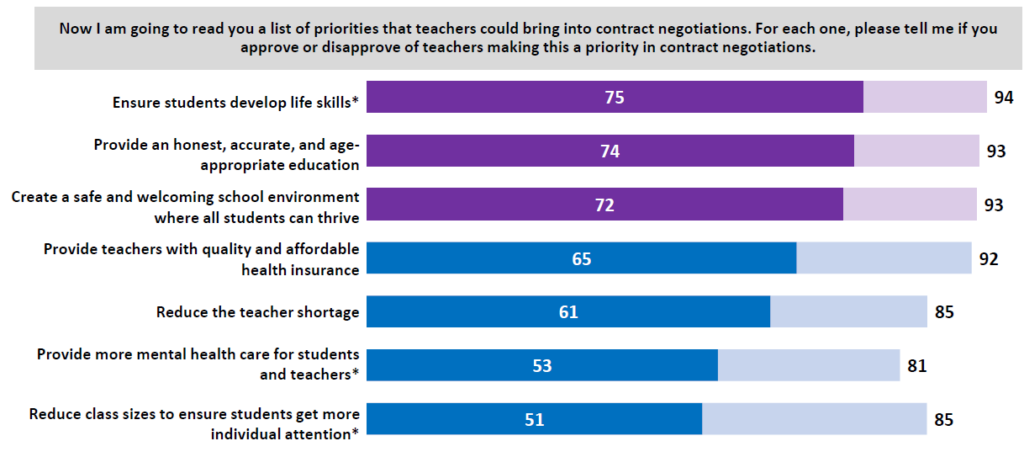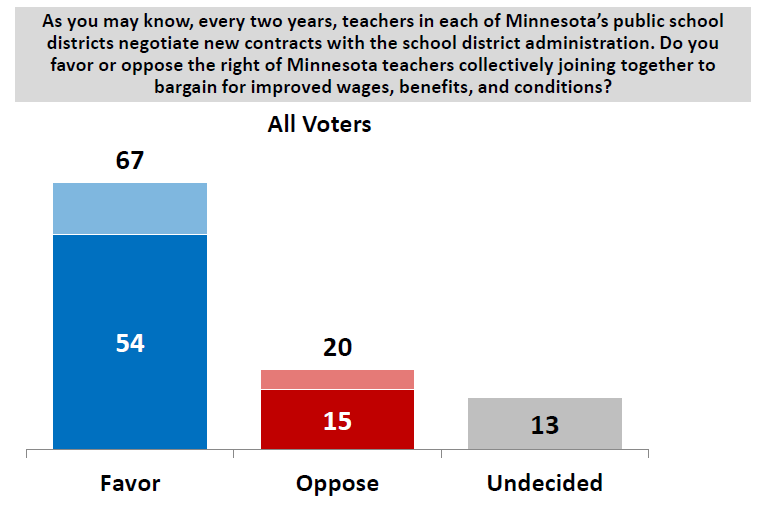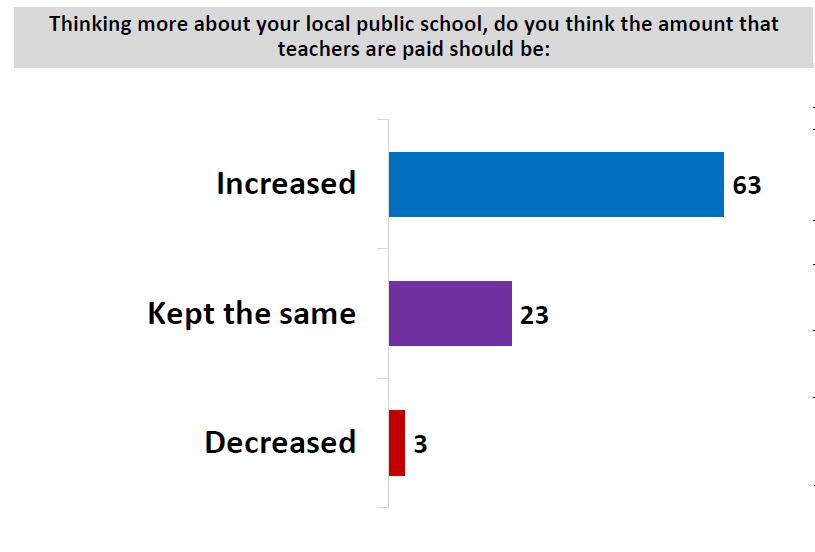Minnesotans and especially parents overwhelmingly support educators, schools and our union’s right to negotiate, according to a recent poll.
Education Minnesota did a statewide poll of Minnesotans this August to gauge their support for educators, schools and collective bargaining. The poll was done to inform our union and provide better support for our locals and members, especially during negotiations.
The poll included adults of all ages and from all parts of the state and an oversample of parents.
Funded in part through a grant from the National Education Association, the poll results will be used to inform a statewide media campaign to help support locals during bargaining and with the asks our members are making at the table.
What did the poll find?
Minnesotans are overwhelmingly favorable toward educators (76 percent). Public school parents are almost universally (89 percent) favorable toward educators.
Two-thirds of Minnesota voters are favorable toward their local neighborhood public school, and a majority give their local public schools a positive rating (55 percent excellent/good).
Minnesotans either think that their local public school needs more resources (41 percent) or can provide a quality education with their current level of resources (39 percent), while only 10 percent think schools could do with less resources. Most public school parents (55 percent) say their local public school needs more resources.
All Minnesotans and especially parents want to increase educators’ salaries. A 63-percent majority think educator salaries should be increased, while 3 percent want to decrease and 23 percent want to keep salaries the same. More than two-thirds (69 percent) of public school parents want to increase the amount educators are paid.
Two thirds of Minnesotans (67 percent) favor collective bargaining, including over half (54 percent) who strongly favor, while only 20 percent oppose.
The top contract issues for Minnesotans, when asked a list of possibilities, are providing educators with quality and affordable health insurance, reducing the educator shortage and providing more mental health care for students and educators.
When asked about providing educators with quality and affordable health insurance, 92 percent of Minnesotans approve or strongly approve. Two-thirds (65 percent) strongly approve.
The idea of reducing the educator shortage resonates with Minnesotans—61 percent strongly approve of reducing the educator shortage, and overall 85 percent of Minnesotans approve of this. This is even higher among public school parents, 91 percent of whom approve.
More than 80 percent of voters approve of providing more mental health care for students and educators. A majority (53 percent) strongly approve.
Minnesotans also support ensuring life skills like confidence, decision-making and communications skills (75 percent strongly approve), providing an honest, accurate and age-appropriate education (74 percent strongly approve), and creating a safe and welcoming school environment where all students can thrive (72 percent strongly approve).
How do these results connect with what our locals are asking for at the bargaining table?
The poll found that Minnesotans believe everyone deserves a quality education, but know educator shortages have created burnout in addition to low salaries that make it hard to attract and retain quality educators.
The poll found that Minnesotans also believe we need to pay educators more/what they deserve/what they are worth, because it enables them to develop a trusted relationship with every child and provide a quality education.
These statements can inform our local union’s asks at the table, as well as the messaging we share with the district, parents and community members as we continue to bargain the contracts that all Minnesota educators deserve.
The poll also showed that as we move toward the next legislative session, we can use the results to show the support Minnesotans have for educators and making sure educators are supported in their work—whether that’s new investments in the school funding formula, pension reform and supporting our right to collectively bargain. The poll tells us that Minnesotans know that investments in educators can help improve outcomes for students by reducing burnout and addressing the educator shortage.
What issues would you support your local educators bringing to the table and making a priority in contract negotiations?





